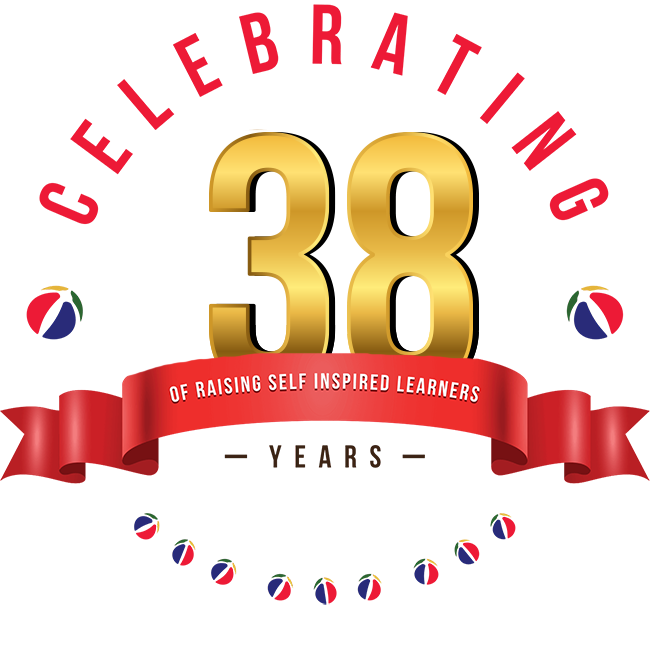Montessori education is well known for its unique approach to education, which focuses on the individual needs and interests of each child. This approach begins in the infant stage, where the foundation is laid for lifelong learning. In this blog, we will explore the benefits of Montessori education for infants, and how it sets the foundation for lifelong learning.
Respect for the Child: One of the fundamental principles of Montessori education is respect for the child. This principle begins in infancy, where the child is treated as a competent human being with the potential to learn and grow. Montessori teachers provide an environment that is safe, nurturing, and stimulating, which allows infants to explore and learn at their own pace.
Child-Centered Approach: Montessori education is centered around the child’s needs and interests. This approach is especially important in the infant stage, where children are learning at an incredible pace. Montessori teachers observe each child carefully and create an environment that is tailored to their individual needs.
Independence: Montessori education emphasizes the importance of independence, even in infancy. Montessori teachers provide infants with opportunities to practice self-help skills, such as feeding, dressing, and toileting. This allows infants to develop a sense of independence and self-confidence.
Movement: Movement is an essential component of Montessori education for infants. Montessori teachers provide infants with opportunities to move freely and explore their environment. This helps infants develop gross motor skills, spatial awareness, and coordination.
Sensory Experience: The Montessori approach recognizes the importance of sensory experience in early childhood development. Montessori teachers provide infants with a variety of sensory experiences, such as exploring different textures, sounds, and colors. This helps infants develop their senses and gain a deeper understanding of the world around them.
Language Development: Montessori education emphasizes language development from an early age. Montessori teachers provide infants with opportunities to develop their language skills through conversation, singing, and storytelling. This helps infants develop their vocabulary, communication skills, and understanding of language.
Order and Routine: Montessori education emphasizes the importance of order and routine in the infant stage. Montessori teachers provide infants with a predictable routine that helps them feel secure and comfortable. This routine also helps infants develop a sense of order and organization.
Individualized Attention: Montessori education provides individualized attention to each child, even in infancy. Montessori teachers observe each child carefully and provide activities that are tailored to their individual needs and interests. This individualized attention helps infants develop a strong sense of self-confidence and self-esteem.
Parent Involvement: Montessori education emphasizes the importance of parent involvement in the infant stage. Montessori teachers work closely with parents to provide a consistent and supportive environment for infants. This collaboration helps infants develop a strong sense of security and belonging.
Focus on Whole Child: Montessori education takes a holistic approach to education, focusing on the whole child – physical, emotional, social, and cognitive development. This approach is especially important in the infant stage, where all areas of development are intertwined. Montessori teachers provide activities that promote development in all areas, ensuring that infants receive a well-rounded education.
Respect for Environment: The Montessori approach emphasizes respect for the environment, even in the infant stage. Montessori teachers provide infants with opportunities to explore and interact with their environment in a respectful and responsible way. This helps infants develop a sense of responsibility and environmental awareness.
Development of gross and fine motor skills: Montessori education for infants also emphasizes the development of gross and fine motor skills. Infants are given opportunities to crawl, walk, climb, and engage in other physical activities that help them develop these skills. They are also provided with materials and activities that help them develop fine motor skills, such as grasping, manipulating, and releasing objects.
Development of language skills: Montessori education for infants focuses on the development of language skills from an early age. Infants are exposed to language through conversations with teachers and other infants, as well as through books and other materials. They are encouraged to babble and imitate sounds, which helps them develop their language skills.
Emphasis on sensory exploration: Montessori education for infants places a strong emphasis on sensory exploration. Infants are given opportunities to explore the world around them through touch, taste, smell, and sound. They are provided with a variety of materials and textures to explore, which helps them develop their senses and cognitive skills.
Encouragement of social skills: Montessori education for infants also encourages the development of social skills. Infants are given opportunities to interact with teachers and other infants, which helps them develop their social skills and emotional intelligence.
Emphasis on independence: Montessori education for infants places a strong emphasis on independence. Infants are given opportunities to make choices and decisions and to develop their sense of self. This helps them become more independent and self-reliant individuals.
Focus on parent involvement: Montessori education for infants also emphasizes the importance of parent involvement. Parents are encouraged to be active participants in their child’s education and to work with teachers to create a supportive learning environment.
Conclusion:
Montessori education for infants provides a strong foundation for lifelong learning. Through a focus on sensory exploration, language development, social skills, and independence, infants are given the tools they need to become confident, self-reliant learners. The emphasis on parent involvement also helps create a supportive learning environment that fosters growth and development. For parents looking for the best private pre-k schools in Houston, Montessori Schools of Downtown offers an excellent option for their infants, providing a nurturing and stimulating environment that sets the foundation for a lifetime of learning.


